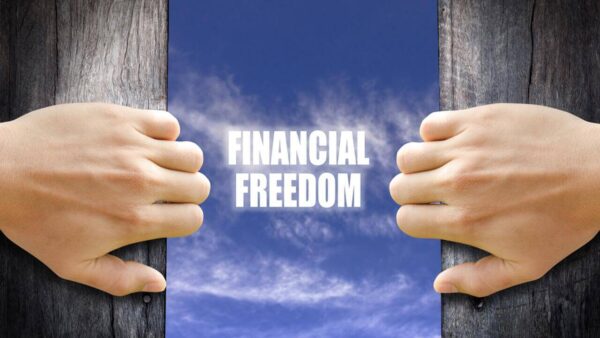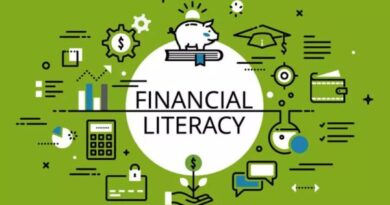The Journey to True Financial Freedom: Crafting a Life Beyond Wealth
In an era where the pursuit of financial stability dominates conversations, the concept of financial freedom has emerged as a goal that transcends mere economic success. But what does financial freedom really entail? Is it solely about amassing wealth, or does it encompass a broader spectrum of life’s aspirations? In this in-depth exploration, we’ll delve into the multifaceted nature of financial freedom, redefining it in a way that resonates not just with your wallet but with your soul.
Understanding Financial Freedom: Beyond the Dollar Sign
Financial freedom is often misinterpreted as the state of having enough money to never worry about bills again. While that’s part of the picture, true financial freedom is about much more than just the digits in your bank account. It’s about creating a life where financial constraints no longer dictate your choices, where you have the liberty to pursue your passions, and where your resources align with your deepest values and goals.
At its core, financial freedom means having control over your time and decisions. It’s the ability to choose what you do, when you do it, and how you spend your money without being tethered to the necessity of earning. It’s about crafting a life that’s rich in experiences, relationships, and personal fulfillment—qualities that money alone cannot buy.
The Evolving Paradigm of Wealth: A Modern Perspective
The traditional approach to wealth-building—focused on saving diligently, minimizing debt, and investing wisely—remains relevant, but it’s no longer sufficient in today’s rapidly changing world. The modern path to financial freedom requires a broader, more dynamic strategy that takes advantage of the unique opportunities presented by the digital age and the evolving global economy.
1. The Power of Multiple Income Streams:
One of the foundational principles of modern financial freedom is the diversification of income. Relying solely on a single source of income, such as a 9-to-5 job, is risky in an unpredictable economy. Instead, cultivating multiple income streams—whether through side hustles, freelance work, passive income investments, or entrepreneurship—provides financial security and accelerates your journey toward independence.
Side hustles can range from starting an online business, offering consulting services, or even monetizing a hobby. These additional income streams not only provide financial resilience but also offer opportunities for personal growth and skill development. They allow you to test new ideas, expand your professional network, and even discover new passions that could lead to more significant ventures.
2. Embracing the Digital Economy:
The rise of the digital economy has revolutionized the way we earn, spend, and invest. Remote work, online businesses, and digital currencies have opened up new avenues for achieving financial freedom. The internet offers limitless opportunities to create wealth, from starting an e-commerce store to becoming a content creator, from investing in cryptocurrencies to participating in the gig economy.
Leveraging the digital economy requires staying informed and adaptable. As new technologies emerge and market trends shift, those who are quick to adapt and learn new skills will be best positioned to thrive. Whether it’s mastering digital marketing, understanding blockchain technology, or navigating the complexities of global e-commerce, continuous learning is key to seizing the opportunities that the digital economy presents.
3. Mindful Financial Management:
Financial freedom isn’t just about increasing income; it’s equally about managing what you already have with intention and purpose. This involves adopting a mindset of mindful consumption, where every financial decision is made in alignment with your long-term goals and values.
Mindful spending means questioning the true value of each purchase, prioritizing quality over quantity, and resisting the urge to spend impulsively. It’s about creating a budget that reflects not just your needs but also your aspirations—whether that’s saving for a dream vacation, investing in a startup, or contributing to a cause you believe in. By aligning your spending with your values, you can reduce financial stress and increase satisfaction with the way you use your money.
Financial Education: The Foundation of Freedom
The journey to financial freedom is paved with knowledge. Understanding the principles of personal finance—such as budgeting, saving, investing, and debt management—is essential to making informed decisions that lead to financial independence. But true financial education goes beyond just the basics; it’s about cultivating a deep, ongoing understanding of the financial landscape and how to navigate it effectively.
1. Investing in Knowledge:
The financial world is complex and ever-changing, so continuous education is crucial. Whether through reading books, listening to podcasts, taking online courses, or attending seminars, consistently seeking out new information and perspectives will keep you ahead of the curve.
For example, understanding the principles of stock market investing can open up opportunities for wealth generation that are inaccessible to those who only save. Similarly, knowledge of real estate investing, tax planning, and estate management can lead to more sophisticated financial strategies that maximize your wealth and protect it for future generations.
2. Seeking Financial Mentorship:
In addition to self-education, having a mentor or financial advisor can be invaluable. A mentor can provide personalized guidance, share lessons from their own experiences, and help you navigate complex financial decisions. Whether it’s a seasoned investor, a successful entrepreneur, or a trusted financial planner, finding someone who can offer wisdom and insight can accelerate your journey to financial freedom.
Mentorship is not just about receiving advice; it’s about building a relationship of trust and learning from someone who has walked the path before you. A good mentor can help you avoid common pitfalls, provide accountability, and offer encouragement during challenging times.

Aligning Finances with Purpose: The Heart of Financial Freedom
Ultimately, financial freedom is not about accumulating wealth for its own sake; it’s about using your financial resources to create a life that is meaningful and fulfilling. This requires aligning your financial goals with your personal values and life purpose.
1. Values-Driven Financial Choices:
Your financial decisions should reflect your core beliefs and values. This means spending, saving, and investing in ways that support not just your financial well-being but also your broader life goals. Whether it’s supporting ethical businesses, investing in sustainable projects, or donating to causes you care about, your money should be a tool for advancing the things that matter most to you.
Values-driven financial planning also involves making intentional choices about how you allocate your resources. For instance, if you value education, you might prioritize saving for your children’s college fund. If you’re passionate about the environment, you might invest in green energy companies or sustainable agriculture. By aligning your financial choices with your values, you can create a sense of purpose and fulfillment that goes beyond monetary wealth.
2. Setting Purpose-Driven Financial Goals:
Financial freedom is most powerful when it’s connected to a larger purpose. Setting financial goals that are rooted in your personal mission can provide motivation and direction as you work toward financial independence. These goals might include funding a passion project, achieving early retirement, creating a legacy for your family, or making a significant impact in your community.
Purpose-driven financial goals are not just about reaching a certain number in your bank account; they’re about creating a vision for your life that inspires and energizes you. As you work toward these goals, you’ll find that financial freedom becomes a journey of self-discovery and personal growth, as well as a means to achieve your dreams.
The Continuous Journey of Financial Freedom:
Achieving financial freedom is not a one-time event; it’s a lifelong process that evolves as you do. Your financial goals, strategies, and priorities will change over time, reflecting the different stages of your life and the lessons you learn along the way. The key is to remain flexible, open-minded, and committed to continuous improvement.
1. Embracing Change and Uncertainty:
The path to financial freedom is rarely linear. You’ll encounter setbacks, surprises, and changes in circumstances that require you to adapt and recalibrate your approach. Whether it’s a career change, an economic downturn, or a shift in your personal priorities, the ability to embrace change and uncertainty is essential to maintaining your progress.
Flexibility and resilience are crucial traits for navigating the ups and downs of your financial journey. By staying focused on your long-term goals while remaining adaptable in the face of challenges, you can continue to move forward, even when the road gets tough.
2. Celebrating Progress and Learning from Setbacks:
As you work toward financial freedom, it’s important to celebrate your successes and acknowledge your progress. Each milestone—whether it’s paying off a debt, reaching a savings goal, or launching a new income stream—deserves recognition. These celebrations not only boost your morale but also reinforce the positive behaviors that lead to financial independence.
At the same time, setbacks are inevitable, and they offer valuable learning opportunities.When challenges arise or errors occur, pause to assess what happened and explore how you can grow from the experience. By viewing setbacks as part of the learning process, you can turn challenges into stepping stones on your journey to financial freedom.
Conclusion: Crafting Your Unique Path to Financial Freedom
Financial freedom is not a one-size-fits-all destination; it’s a deeply personal journey that reflects your individual values, goals, and aspirations. It’s about more than just accumulating wealth—it’s about creating a life of purpose, fulfillment, and autonomy. By embracing a modern approach to wealth-building, investing in financial education, and aligning your finances with your values, you can unlock the true potential of financial freedom.
As you embark on this journey, remember that financial freedom is not an end goal, but an ongoing process of growth and discovery. It’s a path that will evolve with you, offering new opportunities, challenges, and rewards along the way. So take the first step, stay committed to your vision, and craft a life that is not just financially free, but truly rich in every sense of the word.
Are you ready to embark on your journey to true financial freedom?




